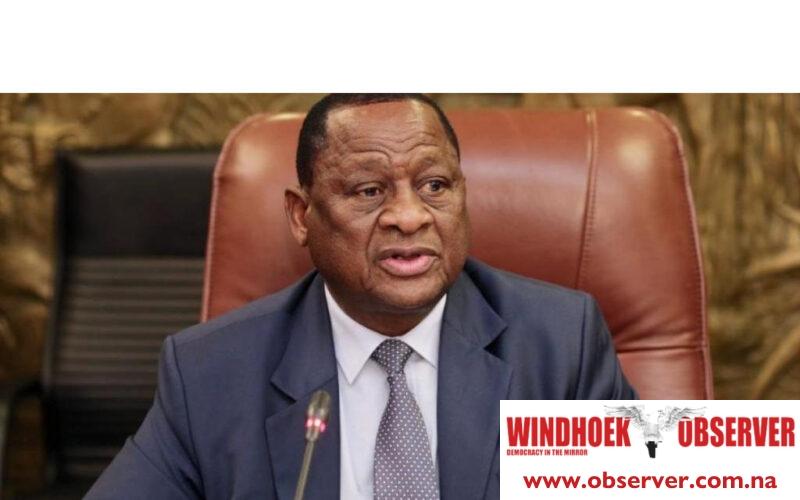Hertta-Maria Amutenja
Despite the global rollout of malaria vaccines to affected countries across the world, Namibia finds itself without access to the malaria vaccine.
Minister of Health and Social Services, Kalumbi Shangula revealed this during an interview with Windhoek Observer on Saturday.
“We do not have the vaccine yet but when the time is right we can always consider alternative ways to combat malaria,’’ said Shangula.
According to the United Nations International Children’s Emergency Fund (UNICEF), the new malaria vaccine is available across sub-Saharan Africa.
“With the new malaria vaccine available across sub-Saharan Africa, more children have a fair chance for surviving and thriving,” said UNICEF.
Speaking at the high-level roundtable discussion on inequalities in HIV, TB, Malaria, and pandemics, Shangula highlighted that malaria remains a significant public health challenge in Namibia.
With 6,147 cases, 630 admissions and 15 deaths recorded this year alone, Shangula stressed the need for alternative strategies to combat malaria.
“This is an increase in both the number of cases and deaths from the previous year where 287 admissions and six deaths were recorded. Initiatives to combat malaria are being intensified. The ministry offers free diagnoses in all public health facilities. The public has access to effective anti-malarial medicines and diagnostic tests,” he said.
Between November 2023 and April 2024, Shangula said the country recorded more than 8,000 cases and 24 deaths.
“But there is hope through collective action and ongoing community we can make a difference,” he stressed.
The minister urged the public to allow the malaria spray teams of the ministry to spray their houses every year with insecticide.
“To sleep under an insecticide-treated mosquito net every night and to wear long-sleeved shirts and trousers when outside. At night use mosquito repellent. When travelling to an area where malaria occurs, talk to your healthcare provider about medicines to prevent you from getting malaria. If you have travelled to an area where malaria has occurred and develop fever, chills, headaches, body aches and fatigue, seek immediate medical care. We can prevent malaria transmission in Namibia,” said Shangula.
Meanwhile, the RTS,S and R21 vaccines have been introduced across sub-Saharan Africa
With Ghana, Kenya, and Malawi already piloting the RTS,S vaccine and Cameroon set to follow suit.
The World Health Organization (WHO) has allocated 18 million doses of the malaria vaccine to twelve countries in Africa, prioritising areas with the highest risk and need. Ghana, Kenya, and Malawi have been administering the vaccine since 2019.
Last Thursday was World Malaria Day, a day dedicated to remembering and recognising the 3.3 billion people globally who are at risk of contracting malaria.
The day is also observed globally to raise awareness about malaria and ways to prevent the disease.
Malaria is caused by female mosquito bites and leads to the death of millions every year around the world.
In Namibia, the disease is prevalent in the Kavango East, Kavango West, Ohangwena, Zambezi, Omusati, Oshana, Kunene, Oshikoto, Omaheke, and Otjozondjupa regions.




